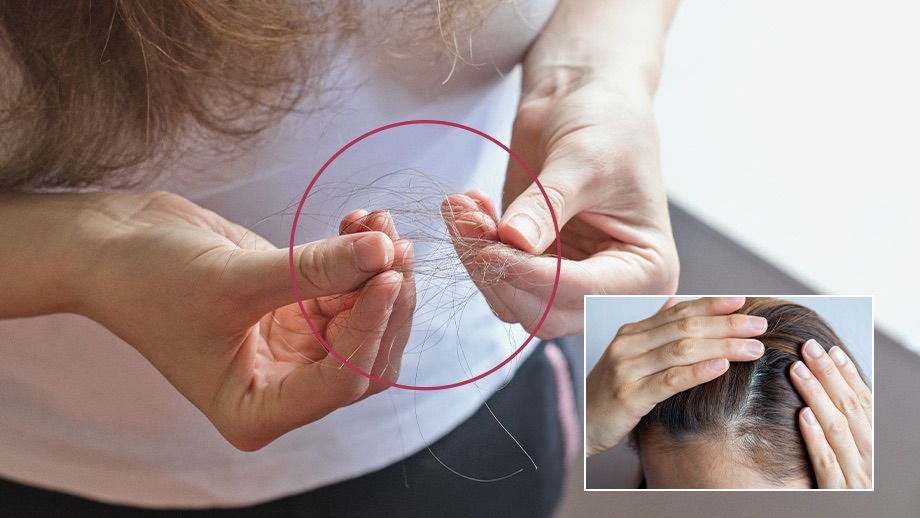Women around the world are told the only thing they can do to treat their PCOS is to take birth control and come back when they want to get pregnant. But these statements can make it feel like you have no other options for treating your PCOS naturally.
Birth control can help some who simply want to manage a few symptoms. However, for others, it’s simply not an option, whether they wish to conceive, have side effects, or don’t like the health risks that come with it.
If you’re tired of hearing that birth control is the only way to treat your PCOS, read on. We’ll look at the best ways to treat your PCOS naturally. These methods have proven to help in specific ways to target the underlying causes of your symptoms and improve your overall health. Let’s get going!
Can PCOS Go Away Naturally?
PCOS can’t go away naturally on its own. Due to the nature of the condition, you will always have the predisposition to have those symptoms. However, you can find relief.
You can do several things to treat your PCOS long-term. For example, exercise, diet, and weight loss can improve your PCOS symptoms. But the catch is that when you stop or as certain things change, those symptoms can return.
So while you may experience a type of remission, your body will continue to have issues with insulin resistance, hormonal imbalances, and reproductive function.
But don’t let that stop you. Many women have found their most aggravating symptoms go away by naturally treating their PCOS. And you can too. Today, we’ll get into the best things you can do to improve your health without the use of medications.
The 7 Best Natural Remedies to Treat PCOS
The best natural treatments for PCOS will vary for everyone. This condition is highly variable and individual. Additionally, the best treatments will be those that you can do consistently. This complex syndrome requires consistent effort and perseverance.
But if you are determined to improve your PCOS in the best ways, you can gear up to tackle it from all sides. Let’s look at natural treatments for your PCOS symptoms.
Weight Loss

Weight Loss and PCOS
This natural remedy is easier said than done. But the research is clear, losing weight can significantly improve your PCOS symptoms and many health risks associated with the syndrome.
Losing weight can help restore menstrual regularity, improve sleep, reduce insulin resistance, and much more. Even a slight 5% to 10% weight reduction can significantly impact metabolic, psychological, and reproductive outcomes.
So how can you lose weight to naturally treat your PCOS when the condition itself seems to work against you? Taking an individualized and comprehensive approach is key. This will include having a well-balanced plan that includes regular and efficient exercise methods, sustainable diets, and other remedies we’ll discuss below.
Stress Management

Yoga and PCOS
Cortisol is the stress hormone. And in fact, it is quite important. While we may think of stress as a bad thing, this hormone can actually help us recover from stress and restore balance. It contributes to sleep cycles, inflammation, carbohydrate usage, blood sugar, and blood pressure. Most cells in your body have cortisol receptors.
If you have regularly high cortisol levels in PCOS, it’ll impact many important processes, such as the reproductive, immune, and digestive systems. Increased cortisol also correlates with increased androgens and inflammation.
So managing stress is an integral part of naturally treating PCOS. Of course, we can’t get rid of all life stressors, but we can address many daily ones.
Practicing stress management techniques can help reduce chronically elevated cortisol levels. You may then start to see improvements in mental health, weight, and menstrual cycles. Stress management may include exercise, journaling, meditation, or prayer.
You can also spend time in nature, with loved ones, or doing an activity you enjoy. Additionally, doing these regularly, whether daily or weekly, can have more lasting and impactful results in lowering chronic stress.
Additionally, consider ways to reduce big stressors in your life. This may include asking for time off work or getting help from coworkers, or resolving family issues in healthy ways.
Herbal Remedies

Herbal Remedies for PCOS
Another way to treat your PCOS naturally can include herbal remedies. Plants are medicine too. For example, turmeric can help decrease polycystic ovaries and improve ovulation, fertility, and blood sugar. It can also aid weight loss and inflammation. Other herbal remedies, including spearmint, licorice, and linseed, have anti-androgen effects.
Spearmint has even reduced testosterone, hirsutism, and ovarian cysts. According to a study on herbal remedies for PCOS, spearmint “has anti-inflammatory, anti-diabetic, and anti-cancer properties. Mentha regulates the blood ratio of LH and FSH. Based on this regulation of LH/FSH in the blood, it could be useful for the treatment of PCOS.”
Some herbs mentioned in the study, such as cinnamon and aloe vera, can improve glucose sensitivity, and ginger helps induce ovulation. So finding ways to add these plants to your PCOS plan can help manage many aspects of this complex condition.
You can take capsules, drink tea, or simply add some to your food. For example, you can easily add cinnamon to your yogurt or oats for breakfast or start your day with a hot cup of spearmint tea.
However, before adding any herbal remedies, consult with your doctor. You don’t want to take too much of something, have allergic reactions, or have them interfere with other medications you may take.
Exercise

Exercise and PCOS
Exercise is an important part of naturally treating PCOS, not only for weight loss. Exercise supports many bodily functions and processes. It can improve mood, digestion, sleep, hormonal balance, energy, menstruation, and fertility.
The National Institutes of Health state that patients with PCOS should aim for 150 minutes of physical exercise per week. However, this should be individualized based on your needs, abilities, and goals.
Even going for a daily 20-minute walk can help improve your mood and energy. But implementing other exercise plans, such as high-intensity interval training and strength or resistance training, lowered testosterone and body fat significantly after 12 weeks, according to a study in the National Library of Medicine.
Another key to exercise to treat your PCOS is consistency. Finding an exercise you actually enjoy and can do regularly will provide more benefits. Exercising with a buddy, attending a class, or finding a routine may help.
For example, if you hate going to the gym, you might enjoy water aerobics in the pool. Or if you don’t have the motivation to go on a walk alone, you can bring someone along. Or read more about yoga for PCOS here.
Diet

PCOS and Diet
A proper diet is key to a healthy lifestyle and treating your PCOS. As insulin resistance plays a major role in the syndrome, eating in response to that will help. Food provides the proper nutrients and energy we need. It also contains essential vitamins and minerals for important bodily processes.
If we don’t eat right, we can experience hormonal imbalances, nutrient deficiencies, and other health risks. Unfortunately, PCOS can contribute to nutrient deficiencies and insulin resistance, making a proper diet more important.
So what should a PCOS diet look like? You can follow specific diet plans. However, you can also follow simple nutritional principles.
First, look at things you should limit in your diet. These will include sugary, high-carb, and high-fat foods such as fast food, desserts, and greasy meals. This doesn’t mean you can never have them again. We simply should have them on occasion.
Next, look for food to include in your diet, such as vegetables, fruits, whole grains, and lean meats. Eat fiber, protein, and healthy sugars and fats. Many of these healthy foods can help slow the release of glucose, which raises blood sugar and contributes to insulin resistance. They can also increase vitamins and minerals that help regulate hormones. Read more about healthy diets for PCOS here.
Sleep Techniques

Sleep and PCOS
Women with PCOS often have a higher risk of sleep apnea, insomnia, and sleep disturbances. This has several bi-directional pathways, meaning that PCOS can cause sleep trouble, and sleep trouble can contribute to PCOS. These causes include insulin resistance, hyperandrogenemia, and issues with cortisol and melatonin secretions.
But when we sleep, our body performs restorative functions. When those processes are disturbed, we can have many symptoms, including fatigue, anxiety, depression, mood disorders, weight gain, and more. Practicing sleep techniques can, thus, greatly improve these symptoms.
A study on sleep and PCOS explained some things you can do to get better sleep. It includes putting away your phone and electronics an hour before bed. Start to wind down and relax. Go to bed at the same time every night, and wake at the same time each morning, even on the weekends.
Try going to bed earlier at night if you frequently stay up late. Avoid caffeine and alcohol at night, and reduce noises and light. Additionally, the study also says to avoid eating three hours before bed.
Good sleep can help restore your energy levels, balance hormones, decrease inflammation, and many more symptoms of PCOS. And it can help you feel a little happier too.
Supplements

Supplements and PCOS
Another natural way to treat PCOS is by incorporating supplements into your daily routine. As PCOS can contribute to a number of deficiencies, including magnesium, calcium, vitamin D, vitamin C, and B vitamins, taking supplements can significantly help.
According to a study on the effect of nutrient supplementation in PCOS, “vitamin or mineral supplements can exert beneficial effects on PCOS-related symptoms such as immature oocytes, hyperinsulinemia, hyperandrogenism, increased BMI, cardiovascular disorders, and mental and psychological problems.”
Some supplements, such as inositol, have great benefits in improving symptoms of PCOS, like insulin resistance, ovulation, and energy. And vitamin B-12 has improved insulin sensitivity, mood, and energy and lowers inflammation.
Talk with your doctor to see if you have any nutrient deficiencies or if you would like to take certain supplements. They can walk you through which ones to take, what dosage, and how to take them. For example, if you have a vitamin D deficiency, your doctor may recommend a higher-dose supplement that also contains magnesium for better absorption.
Read more about the best supplements to improve your PCOS naturally.
What Should I Avoid With PCOS?
In general, there is nothing you must avoid if you have PCOS. While some people online may say to avoid dairy, gluten, and even fruit, that doesn’t mean everyone should. These claims simply lead to confusion. PCOS is a very individualistic condition. It affects every woman so differently. Thus, saying everyone with PCOS must avoid a specific thing doesn’t help anyone.
However, you can avoid or limit things in general, such as alcohol, unhealthy foods, and things that specifically cause you issues. For example, if you have a food intolerance, you should avoid that food. Try to limit how often you go out to eat. Or you can avoid certain stressors.
You can determine what you should avoid with PCOS. But more importantly, think about what you should include. What things can you start doing and eating to improve your symptoms?
Find Balance to Naturally Improve Your PCOS
There are so many ways to naturally treat your PCOS. It can sometimes feel overwhelming trying to do it all. Set goals and make plans to achieve them. Then start small. Perhaps your goal is to improve your sleep. Now take actionable steps to do so. Then add something else. Maybe you can set a goal to exercise every morning.
Taking things step by step is a great way to start. Find a balance between food, exercise, and other aspects of life. Do things you enjoy. Get outside. Eat well. Exercise in fun ways. And occasionally, you can still treat yourself to a little birthday cake every now and then.
Taking a comprehensive approach to treating your PCOS can lead to significant results. Focus on treating the underlying causes of your symptoms instead of just masking them. With some work, time, and support, you can find relief and begin to improve your PCOS naturally.
What has worked to help improve your PCOS? Let us know below!








